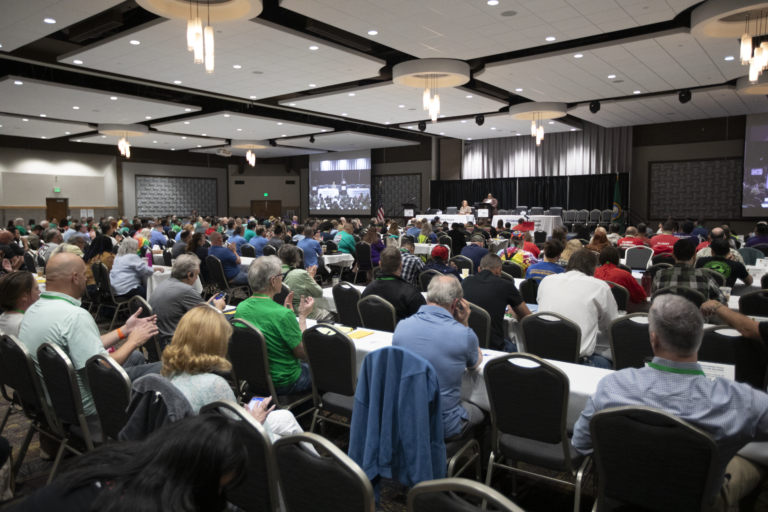
A Delegate to a union or Labor Organization’s Convention represents a group of their fellow members or stakeholders. Their conduct and their vote at Convention represents the will of these members, and Delegates must take care to remember this as they interact with other Delegates and debate resolutions.
Unions and Labor organizations have individual procedures for selecting the people who will serve as Delegates to Conventions. Delegates may be elected by an organization’s membership, they may be selected by leadership, or there may be other methods. The first step in a member becoming a Delegate is to check with the organization’s leadership about this procedure.
Once a member has been named a Delegate to a Convention, they must register and begin the credentialing process. They must also familiarize themselves with the Convention’s rules (usually set prior to the opening session) and the Convention’s agenda. It’s also a very good idea for Delegates to meet with other Delegates from their organization (who form the organization’s “Delegation”) so they can agree on initiatives to pursue at Convention and craft resolutions. It’s not uncommon that a Convention will require that resolutions be submitted before the opening session, so it’s important to work on those early.
The first thing a Delegate should do when arriving at Convention is check their registration and credentials with Convention staff. Once this is done, they can begin engaging in the business of Convention – finding their Delegation’s seat on the Convention floor, meeting their fellow Delegates, and making plans for the day.
A day’s session at a Convention may include speeches from Leadership and guests, workshops, constituent group meetings, and voting on resolutions. A Delegate is expected to represent the members of the organization that sent them to the Convention in all these matters.
Once Convention business has closed for the day, Delegates are free to socialize with each other or attend events the Convention organizers have put together. It’s important to remember, however, that Convention business is often conducted at these social events. Delegates who want to gain support for their initiatives or resolutions can use these events to talk with other Delegates in less formal environments and make their case.
Heading home from Convention isn’t the end of a Delegate’s duties. After the Convention they may be asked for a report by their organization, and they may be called on to represent their organization for special Convention sessions called later.
Member and stakeholder guidance at Conventions is an important democratic process that is at the heart of our Labor movement. Members who serve as Delegates to Conventions have the opportunity to represent their unions, meet their fellow union members, and advocate for issues important to them and their Locals – but they also play a vital role in making sure our Labor organizations are member-driven and accountable to the constituents they serve.
<< What Is A Convention? |
